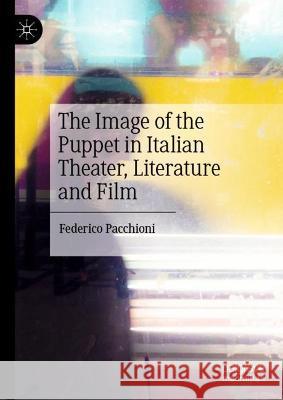The Image of the Puppet in Italian Theater, Literature and Film » książka
topmenu
The Image of the Puppet in Italian Theater, Literature and Film
ISBN-13: 9783030986674 / Angielski / Twarda / 2022 / 125 str.
Kategorie:
Kategorie BISAC:
Wydawca:
Springer Nature Switzerland AG
Język:
Angielski
ISBN-13:
9783030986674
Rok wydania:
2022
Ilość stron:
125
Wymiary:
21.0 x 14.8
Oprawa:
Twarda
Dodatkowe informacje:
Wydanie ilustrowane











